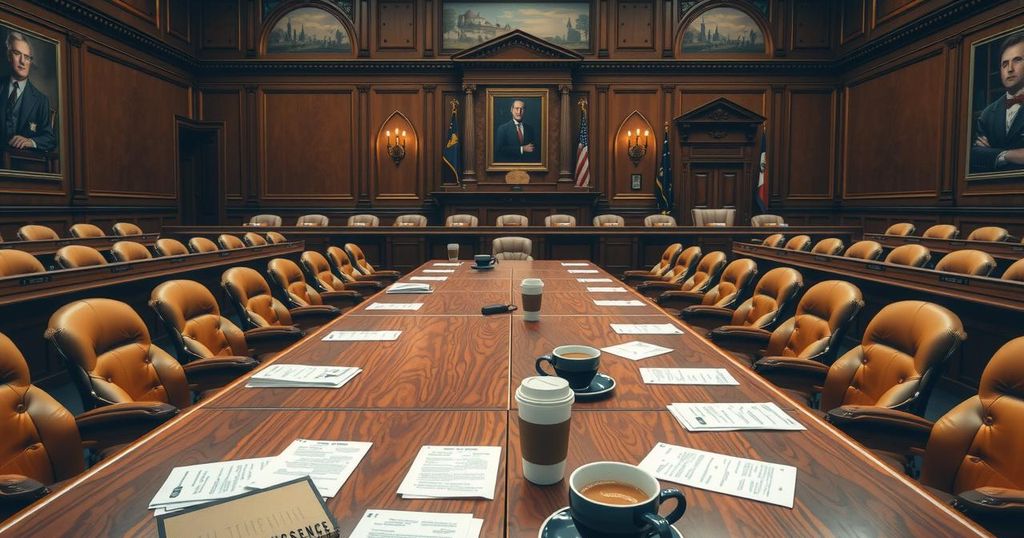Nigerian Lawmakers Allegedly Bribed Amid Political Crisis Over Rivers Proclamation
Nigerian lawmakers reportedly received bribes as allies of President Tinubu aimed to secure support for his emergency proclamation in Rivers State. Only 113 lawmakers attended the plenary, falling short of a quorum necessary for action. Eleven legislators confirmed receiving bribes of up to $25,000 to support the president’s controversial measures, raising concerns about constitutional integrity and governance in Nigeria.
In a concerning turn of events at the National Assembly, Nigerian lawmakers have reportedly accepted substantial bribes as allies of President Bola Tinubu strive to prevent a major setback regarding his proclamation in Rivers State. Sources indicate that eleven legislators, including seven senators and four representatives, confirmed receiving offers of up to $25,000 in exchange for supporting the invocation of Section 305 of the Nigerian Constitution, which seeks to dismantle democratic institutions in Rivers and impose military governance.
The situation became dire as attendance dwindled, with only 113 members present in the House, falling short of the simple quorum of 120 required for legislative action. Attempts to persuade lawmakers to attend were met with significant resistance, particularly from those representing Borno, who received directives from their governors to abstain from supporting the emergency rule in Rivers. Consequently, discussions of cash bribes were initiated by loyalists to President Tinubu, targeting the reluctant lawmakers.
Interviews with fourteen members revealed that eleven confirmed receiving offers, with varying amounts paid in a short time frame. Some lawmakers were approached at different locations in Abuja, alluding to a coordinated effort to secure votes swiftly. The urgency stems from a previous announcement by President Tinubu, who cited political tensions as justification for the emergency measures. However, many legal scholars and citizens have condemned this action, deeming it unconstitutional and a threat to national unity.
The situation requires immediate attention, as the president must secure parliamentary backing within 48 hours for the proclamation to remain valid. The constitutional requirements for ratifying such a declaration are stringent, necessitating two-thirds approval from both chambers of the legislature, which has not been met thus far. The recent situation highlights the fragility of democratic processes in Nigeria and the potential implications of circumventing established governance.
The reported bribery of Nigerian lawmakers illustrates a significant challenge to the integrity of the legislative process amidst escalating political tensions. President Tinubu’s proclamation to impose emergency rule in Rivers State is facing staunch opposition, and the alarming offers made to legislators underscore the lengths to which officials may go to secure compliance. The broader implications of this situation may extend beyond the immediate legislative concerns to impact national governance and cohesion.
Original Source: gazettengr.com




Post Comment